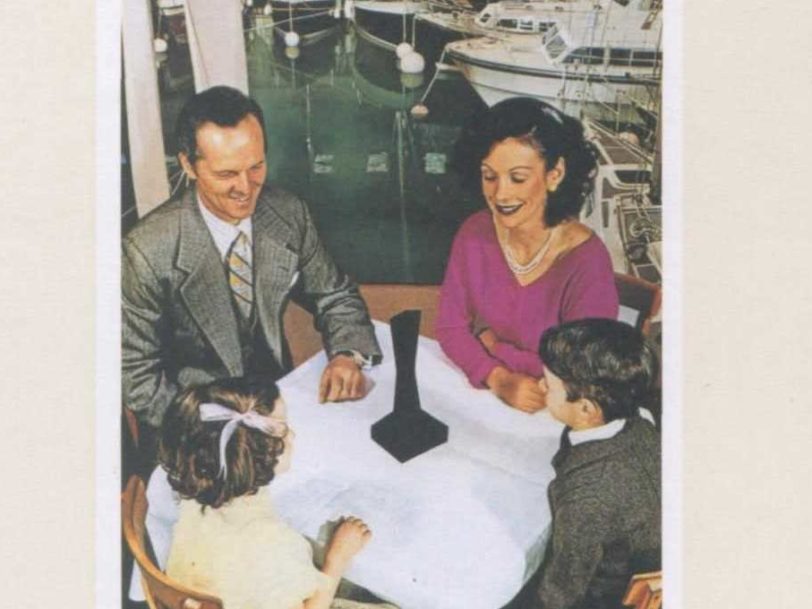Though Led Zeppelin were renowned for their hedonism, 1975 proved to be an especially sobering year for the group. It began in triumph, with the release of their landmark double-album, Physical Graffiti, but ended in near tragedy with Jimmy Page and co fashioning their seventh album, Presence, in especially testing circumstances.
Listen to Presence here.
“Presence was a cry from the depths”
Back in the spring of that year, the sky literally seemed the limit for the iconic hard rockers. Physical Graffiti was duly supported by a critically-acclaimed US tour, before Led Zeppelin embarked on a spectacular lap of honour courtesy of a sold-out, five-night stand at London’s cavernous Earls Court Arena in May. Flush with success, all concerned then headed off on holiday while manager Peter Grant laid plans for a mammoth world tour.
Led Zeppelin seemed all but invincible as Page and Robert Plant set off into the wide blue yonder, travelling to Morocco to record with the Berber tribes of the Atlas Mountains, before moving on to meet their families on the Greek island of Rhodes. However, after Page left the island for a sojourn in Sicily, disaster dealt a near-fatal blow. When Plant, his family and Page’s daughter Scarlet were driving along a narrow island road, their car spun wildly out of control and plunged down a ravine, hitting a tree. Thankfully, the children escaped with only minor bruises, but both Plant and his wife, Maureen, were seriously injured.
It took some time for the couple to recover. Plant broke an ankle and elbow – which wouldn’t fully heal for another two years – and he spent considerable time in a wheelchair. The down time also crippled Led Zeppelin’s upcoming plans, including the mooted shows in support of Physical Graffiti. Forced to cancel the dates, the group decided their energy should instead be diverted into making a new album.
“No one knew what was going to happen”
Peter Grant rented a beach house in Malibu, California, for Page and Plant to write new material, but after a storm washed part of the house away, the band decamped to Musicland Studios, a new complex in the basement of the Arabella Hotel in Munich, Germany, to record what would become Presence in just three weeks. However, that deadline wasn’t entirely self-imposed, as Jimmy Page later revealed.
“The Rolling Stones were due to use the studio next,” the guitarist told Radio.com. “So I asked Mick [Jagger] if we could have a couple more days.” The Stones were “trying all different guitarists out” while looking to replace Mick Taylor for the Black And Blue album, so Jagger gave Led Zeppelin the go-ahead.
The pressure of finite studio time added to the already fractious atmosphere within the band. Plant was either in a wheelchair or hobbling around on crutches during the sessions, and he later told Circus magazine, “Presence was an album of circumstances. It was a cry from the depths, the only thing that we could do. I honestly didn’t know what was going to happen and neither did anybody else.”
Despite – or perhaps because of – the circumstances, Presence ended up including some of the most determinedly aggressive music Led Zeppelin would ever make. Primarily comprising no-nonsense hard rock songs, the album was narrower in scope, stylistically, than Houses Of The Holy or Physical Graffiti, but its explosive energy more than made up for its lack of sonic innovation.
“There was a unified will to do this album”
Presence was bookended by its two most outstanding tracks. The epic, ten-minute opener, Achilles Last Stand, arguably remains John Bonham’s crowning achievement, the drummer propelling the song with an animalistic fury and liberally peppering the rhythm track with increasingly muscular rolls around his kit. Yet the musical backdrop was more complex than it initially appeared, with John Paul Jones performing his nimble basslines on an Alembic eight-string bass and Page adding no less than six guitar parts during a marathon overdubbing session.




